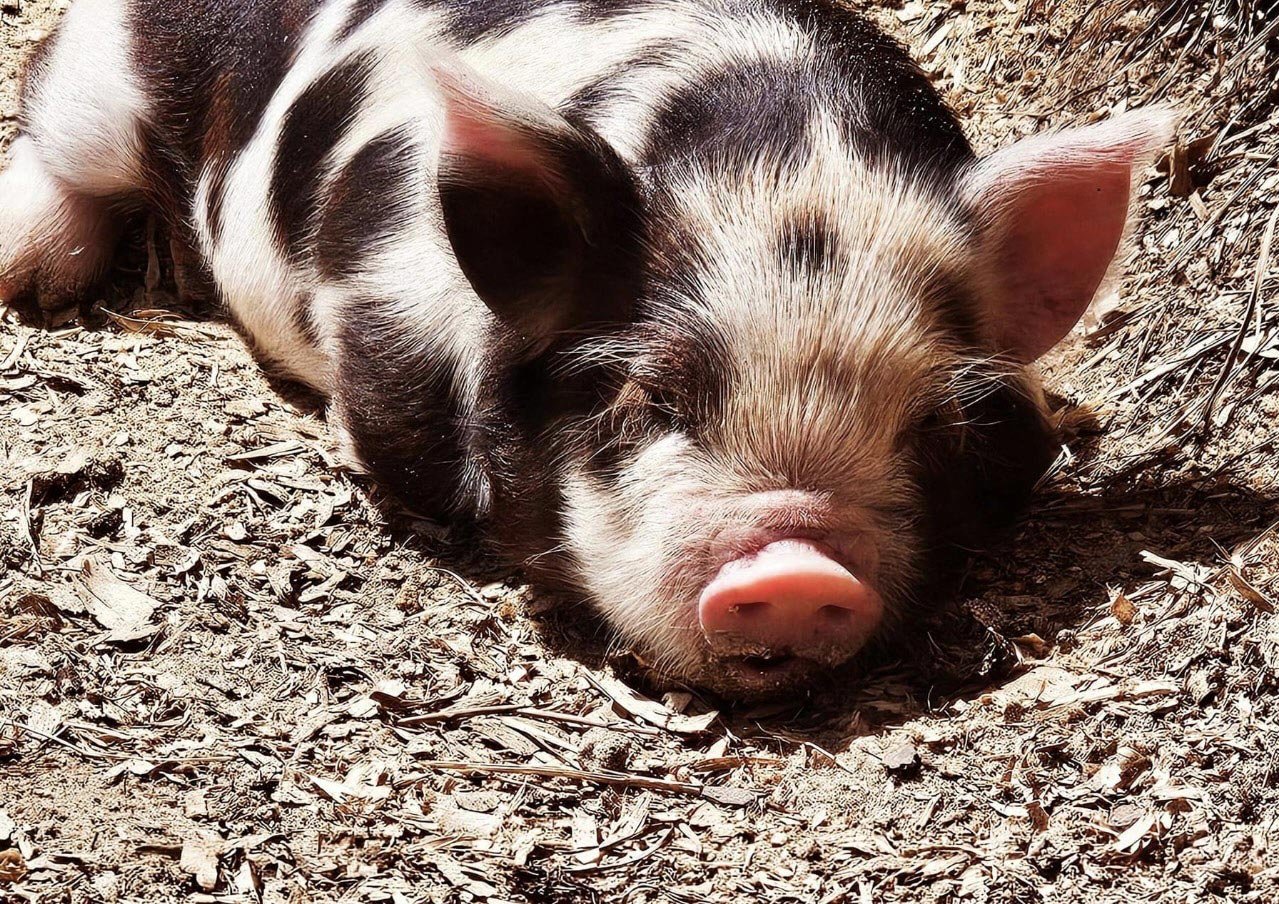
KUNEKUNE PIG FAQs
Welcome to the Cedar Acres Kunekune Farm FAQ page! Here, you'll find answers to the most common questions about our Kunekune pigs. Whether you're curious about their care or diet, we've got you covered. Our goal is to provide you with all the information you need to make an informed decision and to ensure a smooth and enjoyable experience with your new Kunekune pigs. If you have any questions that aren't addressed here, please feel free to contact us directly.
-
Kunekune pigs are known for their friendly and docile nature. They are smaller in size compared to other pig breeds and have distinctive, bristly hair and a unique appearance with a short, upturned snout. Kunekune pigs are also known for their ability to thrive on a pasture-based diet, making them ideal for sustainable farming.
-
Adult Kunekune pigs typically weigh between 100 to 250 pounds (45 to 115 kg) and stand about 24 inches tall at the shoulder. Their small size makes them easier to manage compared to larger pig breeds.
-
Kunekune pigs primarily graze on grass and other vegetation. They can be supplemented with pig pellets, fruits, and vegetables to ensure they receive a balanced diet. It's important to avoid overfeeding them to prevent obesity.
-
Yes, Kunekune pigs make excellent pets due to their friendly and sociable nature. They enjoy human interaction and are relatively easy to train. However, potential owners should be prepared for their specific care needs and the commitment required to keep them healthy and happy.
-
Kunekune pigs require ample space to roam and graze. A minimum of half an acre per pig is recommended to provide them with enough room to forage and exercise. Proper fencing is essential to keep them safe and contained.
-
Kunekune pigs typically live between 12 to 15 years, although with proper care, they can live even longer. Their lifespan is influenced by factors such as diet, environment, and overall health care.
-
Caring for Kunekune pigs involves providing them with a balanced diet, fresh water, adequate shelter, and regular veterinary care. They also need space to roam and graze, along with social interaction and mental stimulation. Regular hoof trimming and parasite control are also important aspects of their care.
-
Yes, Kunekune pigs are valued for their high-quality, flavorful meat. They have a good ratio of fat to muscle, producing tender and juicy cuts. Their ability to thrive on pasture-based diets also makes them a sustainable choice for meat production.
-
Kunekune pigs are generally friendly and can coexist peacefully with other animals, including livestock and pets. However, it's important to introduce them gradually and monitor their interactions to ensure harmony among the animals.
-
Kunekune pigs offer several benefits, including their docile nature, ease of handling, and ability to thrive on a pasture-based diet. They are also smaller and require less space, making them suitable for small-scale farming. Additionally, their high-quality meat and low environmental impact make them an attractive choice for sustainable farming practices.
-
Yes, Kunekune pigs can live outdoors year-round if they have access to adequate shelter that protects them from extreme weather conditions such as heavy rain, wind, and snow. Providing a dry, warm shelter with bedding will help them stay comfortable.
-
Yes, like other livestock, Kunekune pigs require vaccinations to protect them from common diseases such as erysipelas, leptospirosis, and porcine parvovirus. Consult with a veterinarian to create a vaccination schedule tailored to your pigs' needs.
-
Regular deworming and good pasture management are essential to prevent and control internal parasites in Kunekune pigs. External parasites, such as lice and mites, can be managed with appropriate treatments recommended by a veterinarian. Maintaining clean living conditions also helps reduce the risk of infestations.
-
Sturdy, secure fencing is crucial for keeping Kunekune pigs safe and contained. Electric fencing or strong mesh fencing with a height of at least 3-4 feet is recommended. Make sure the fencing is buried or secured at the bottom to prevent pigs from rooting underneath it.
-
Kunekune pigs reach sexual maturity at around 6-8 months of age. The breeding process is similar to other pig breeds, with sows having a gestation period of approximately 114 days (about 3 months, 3 weeks, and 3 days). Litters typically consist of 6-10 piglets. Proper care and nutrition are essential for the health of the sow and her piglets during and after pregnancy.




